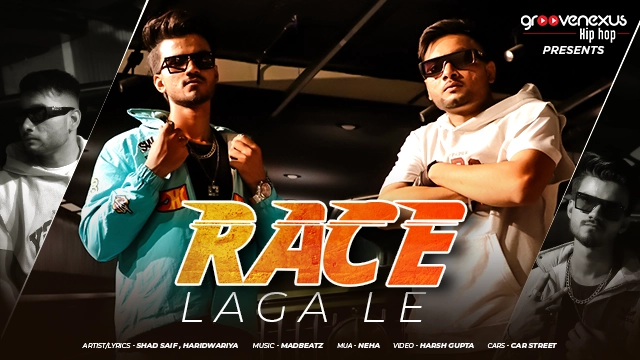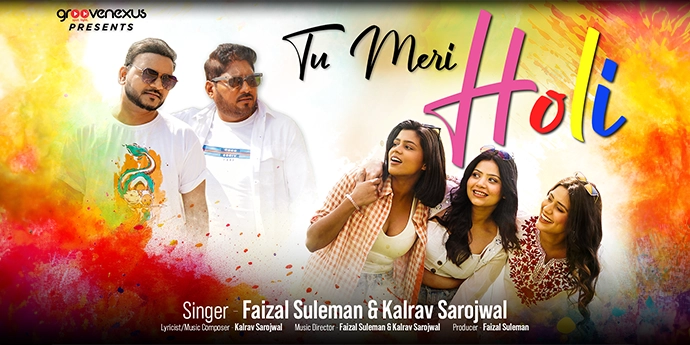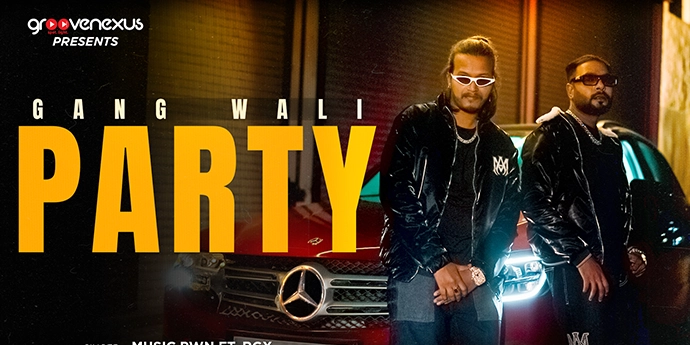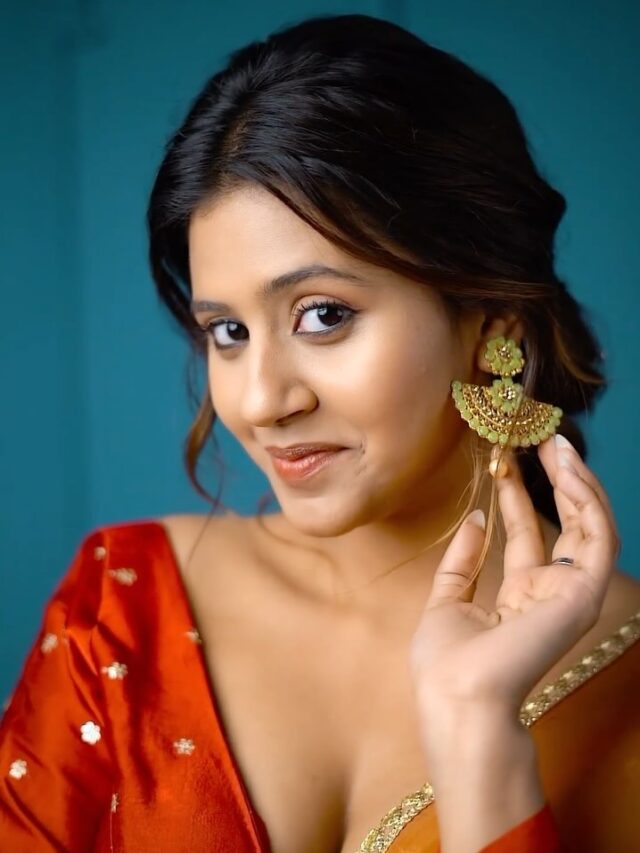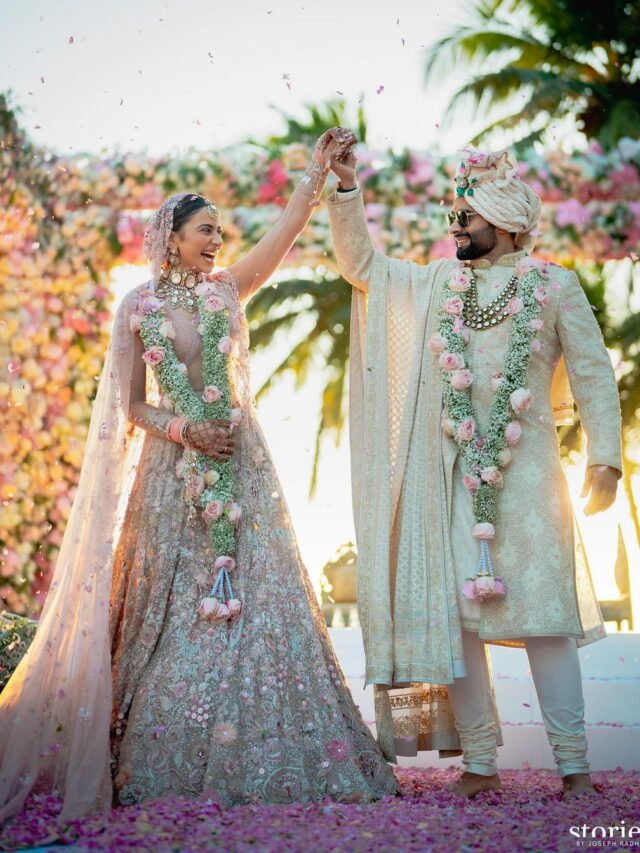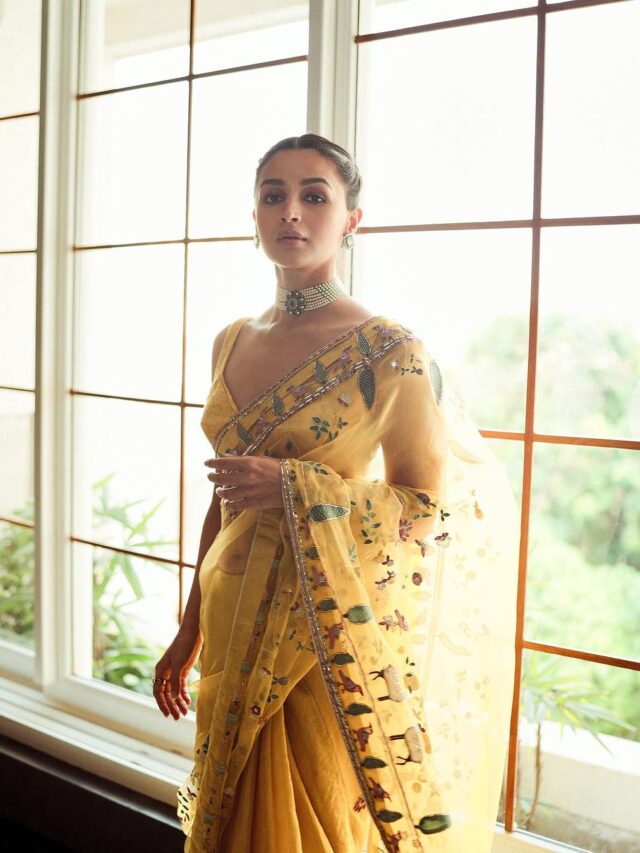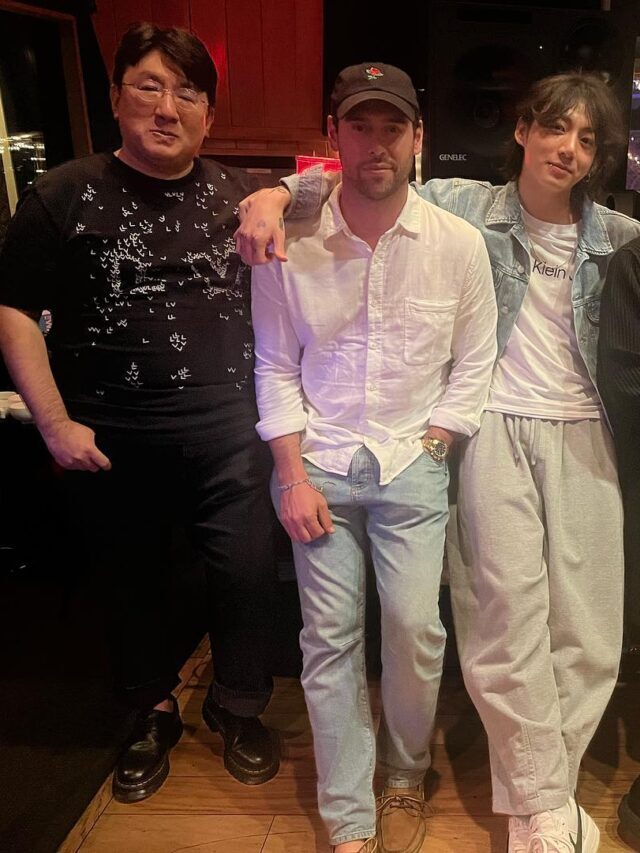In the ephemeral tapestry of time, some melodies transcend the boundaries of mortality, echoing through the corridors of our hearts for generations. Today, as we stand on the precipice of remembrance, we embark on a harmonious journey through the soul-stirring tunes of the legendary Manna Dey. On this poignant occasion of his death anniversary, we pay homage not just to the man but to the eternal tunes that continue to breathe life into our memories.
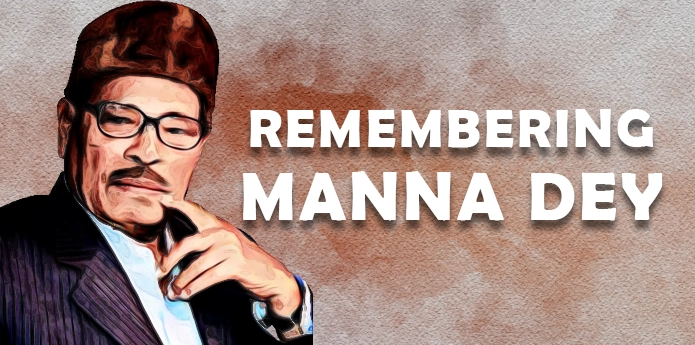
Best Manna Dey Songs –
1. Ye Dosti Hum Nahin
yeh dosti ham nahi todenge
todenge dam magar tera sath na chhorenge
yeh dosti ham nahi todenge
todenge dam magar tera sath na chhorenge
“Yeh Dosti Hum Nahi Todenge” is a timeless musical gem that echoes the enduring spirit of friendship. This classic song, immortalized by the legendary voices of Kishore Kumar and Manna Dey, is a testament to the unparalleled magic they created together. Featured in the iconic Bollywood film “Sholay” (1975), starring Dharmendra and Amitabh Bachchan, the song has etched its place in the hearts of millions.
Manna Dey’s soul-stirring rendition, complemented by Kishore Kumar’s charismatic vocals, takes listeners on a nostalgic journey through the realms of camaraderie and loyalty. The lyrics penned by Anand Bakshi are not just words; they are emotions that resonate with the essence of true friendship.
As the music, composed by the maestro R. D. Burman, weaves its melody, “Yeh Dosti Ham Nahi Todenge” becomes a celebration of the unbreakable bond between friends. The song effortlessly captures the highs and lows of life, promising to stand by each other through thick and thin.
Song: Yeh Dost Hum Nahi Todenge
Singer: Kishore Kumar and Manna Dey
Movie: Sholay (1975)
Starcast: Dharmendra, Amitabh Bachchan
Music Director: R. D. Burman
Lyrics: Anand Bakshi
2. Pyar Hua Iqrar Hua
Pyaar hua, ikraar hua hai
Pyaar se phir kyoon darrta hai dil
Kehta hai dil rasta mushkil
Maaloom nahin hai kahan manzil
“Pyaar Hua Iqrar Hua” is a captivating melody that stands as a testament to the golden era of Bollywood music, and in particular, the brilliance of Manna Dey. This timeless hit, featured in the classic film “Shri 420,” directed by the legendary Raj Kapoor, is a cherished gem in the extensive list of Manna Dey songs.
The song, a beautiful duet between Manna Dey and Lata Mangeshkar, begins with the enchanting lines, “Pyaar hua, ikraar hua hai, pyaar se phir kyoon darrta hai dil,” setting the stage for a love story that unfolds through the rich tapestry of melody and emotion. The poetic lyrics, penned with finesse, explore the nuances of love, fear, and the unpredictable journey of the heart.
Shankar-Jaikishan’s musical brilliance is evident in the composition, where each note weaves seamlessly with the soulful voices of Manna Dey and Lata Mangeshkar. The orchestration reflects the charm of the bygone era, creating an enchanting atmosphere that lingers in the hearts of listeners.
Movie: Shri 420
Music Director: Shankar-Jaikishan
Singers: Manna Dey, Lata Mangeshkar
Director: Raj Kapoor
3. Yashomati Maiya Se Bole Nandlala
Yashomati maiya se bole Nandlala
Radha kyon gori main kyon kala
Radha kyon gori main kyon kala
Boli muskaati maiya lalan ko bataya
Boli muskaati maiya lalan ko bataya
Kaari andhiyari aadhi raat mein tu aaya
Ladla Kanhiya mera ho
Ladla Kanhiya mera kali kamli wala
Isiliye kala
“Yashomati Maiya Se Bole Nandlala” from the album “Satyam Shivam Sundaram” (1978) is a divine musical masterpiece that transcends time. This Manna Dey hit song, a collaboration with the legendary Lata Mangeshkar, showcases the classical prowess of both singers. The composition by Laxmikant and Pyarelal, coupled with the soul-stirring lyrics penned by Narendra Sharma, creates a celestial ambiance.
The song unfolds with devotion, narrating the conversation between Lord Krishna (Nandlala) and Mother Yashoda (Yashomati Maiya). The poetic lyrics delve into the contrast between the fair complexion of Radha and the dark charm of Krishna, celebrating the mystical love between the divine couple.
Lata Mangeshkar’s mellifluous voice and Manna Dey’s evocative rendition bring to life the enchanting tale of Krishna’s childhood escapades. The use of classical raagas and intricate musical arrangements elevates the song to a spiritual experience, making it an integral part of the “Satyam Shivam Sundaram” album.
Song: Yashomati Maiya Se Bole Nandlala
Album: Satyam Shivam Sundaram (1978)
Singer: Lata Mangeshkar, Manna Dey
Musician: Laxmikant, Pyarelal
Lyricist: Narendra Sharma
4. Zindagi Kaisi Hai Paheli
Zindagi Kaisi Hai Paheli, Haye
Kabhi To Hasaye, Kabhi Yeh Rulaye
Zindagi Kaisi Hai Paheli, Haye
Kabhi To Hasaye, Kabhi Yeh Rulaye
Kabhi Dekho Man Nahi Jaage
Pichhe Pichhe Sapno Ke Bhaage
Kabhi Dekho Man Nahi Jaage
Pichhe Pichhe Sapno Ke Bhaage
Ek Din Sapno Ka Raahi
Chala Jaye Sapno Se Aage Kahan
Zindagi Kaisi Hai Paheli, Haye
Kabhi To Hasaaye, Kabhi Ye Rulaye
“Zindagi Kaisi Hai Paheli” is not just a song; it’s a philosophical journey through the complexities of life, beautifully expressed through the soulful voice of Manna Dey. Featured in the classic film “Anand” (1971), this Manna Dey hit song resonates with timeless wisdom and introspection.
The lyrics, penned by Yogesh, delve into the enigma of life, describing it as a puzzle with moments of joy and sorrow. Manna Dey’s emotive rendition adds a layer of depth to the contemplative lyrics. The haunting melody, composed by Salil Chowdhury, weaves seamlessly with the profound lyrics, creating a musical masterpiece that transcends generations.
“Zindagi Kaisi Hai Paheli” reflects the ebb and flow of life’s journey—sometimes making us smile, and at other times bringing tears. The use of poetic metaphors paints a vivid picture of the human experience, making it relatable to people from all walks of life.
The music, with its minimalistic yet impactful arrangement, allows Manna Dey’s voice to take center stage. The simplicity of the composition enhances the emotional impact of the song, making it a classic that continues to tug at the heartstrings of listeners.
“Anand,” a film known for its emotional depth, finds one of its most memorable moments in this Manna Dey old song. The song has become synonymous with the reflective mood, carrying a universal message that resonates with individuals on a personal level.
“Zindagi Kaisi Hai Paheli” stands as a testament to Manna Dey’s versatility and the collaborative brilliance of the composer Salil Chowdhury and lyricist Yogesh. This song remains an integral part of the best of Manna Dey, leaving an indelible mark on the landscape of Hindi film music.
Song: Zindagi Kaisi Hai Paheli
Singer(s): Manna Dey
Movie: Anand (1971)
Music Director: Salil Chowdhury
Lyricist: Yogesh
5. Tu Pyar Ka Sagar Hai
tu pyaar ka saagar hai
teri ek boond ke pyaase hum
teri ek boond ke pyaase hum
“Tu Pyar Ka Sagar Hai” is not just a song; it’s a heartfelt hymn that encapsulates the profound yearning for love and spiritual fulfillment. Sung by the legendary Manna Dey, this masterpiece is a timeless gem from the film “Seema” (1955), where music maestros Shankar-Jaikishan and lyricist Shailendra collaborated to create a divine melody.
The lyrics paint a vivid picture of human longing, comparing the beloved to an ocean of love. The metaphor of being thirsty for a single drop of love beautifully captures the essence of the human soul seeking divine connection. Manna Dey’s emotive rendition adds depth and sincerity to the verses, making it more than just a song; it’s a soul-stirring prayer.
The chorus, with its repetition of “Tu Pyar Ka Sagar Hai,” reinforces the theme of love being an infinite ocean, and the singer expressing a deep sense of thirst for the beloved’s love. The poetic lines resonate with the listener, stirring emotions and fostering a sense of introspection.
The musical arrangement by Shankar-Jaikishan complements the spiritual theme, creating an ethereal atmosphere that enhances the song’s impact. The use of classical elements and the soulful rendition by Manna Dey make this composition a classic not just in the realm of Bollywood music but in the broader context of spiritual and devotional melodies.
Album: Seema
Artist: Manna Dey
Music Director: Shankar-Jaikishan
Lyricist: Shailendra
Film Star: Nutan, Balraj Sahni, Sunder Singh, Shubha Khote
Director: Amiya Chakrabarty
6. Ae Bhai Zara Dekh Ke Chalo
Aye bhai zara dekhake
Chalo aage hi nahin pichhe bhi
Daayen hi nahin baayen bhi
Upar hi nahin niche bhi
Aye bhai zara dekhake
Chalo aage hi nahin pichhe bhi
Daayen hi nahin baayen bhi
Upar hi nahin niche bhi
Aye bhai
“Ae Bhai Zara Dekh Ke Chalo” is not just a song; it’s a spirited anthem that encapsulates the vibrant, chaotic, and diverse tapestry of life. Sung by the legendary Manna Dey, this iconic track is a highlight from the film “Mera Naam Joker” (1970), directed by the cinematic maestro Raj Kapoor.
The song’s lyrics, penned by Neeraj Shridhar, serve as a spirited commentary on the multifaceted nature of the world. Manna Dey’s energetic rendition adds an extra layer of liveliness to the composition, making it a memorable and uplifting musical experience.
Set against the backdrop of Raj Kapoor’s vision, “Ae Bhai Zara Dekh Ke Chalo” takes the audience on a journey through the various facets of life. The lyrics reflect the dynamic nature of the world, with the singer urging everyone to look around and move forward with enthusiasm, embracing the unpredictability of life.
Shankar-Jaikishan’s music complements the song’s theme perfectly, incorporating a mix of traditional and contemporary elements. The lively and rhythmic arrangement captures the spirit of the song, making it a delightful addition to the soundtrack of “Mera Naam Joker.”
Title: Mera Naam Joker
Director: Raj Kapoor
Artist: Manna Dey
Music Director: Shankar-Jaikishan
Lyricist: Neeraj Shridhar
7. Ek Chatur Naar Karke Sringar
Ek Chatur Naar Kar Ke Singaar, Mere Mann Ke Dvaar Yeh Ghusat Jaat
Ham Marat Jaat, Are He He He…..
Yak Chatur Naar Kar Ke Singaar……
Pa Re Sa, Sa Sa Sa Nee Dh Sa
Sa Re Sa Dha Dha Pa
Pa Dha Sa Re Sa, Sa Re Ga Dha Pa
Yak Chatur Naar Kar Ke Singaar……
Umm Dham Mah Ayyo!
Are Dham, O Dham, O Dham Dham Dham Ruk, Um Bru Um Bru
O A A I I U U E Ai O Au An
Um Nam Nam Nam Nam Nam Nam
Nam Nam Lama Lama Lama Lama La
Um Bal Bal Bal Bal Re, Bal Bal Bal Bal Re, Bal Bal Bal Bal Re, Om
Ek Chatur Naar Badee Hoshiyaar -2, Apane Hee Jaal Me Phasat Jaat
“Ek Chatur Naar Karke Sringar” is a song from the Bollywood classic “Padosan” (1968). Sung by the dynamic duo of Kishore Kumar and Manna Dey, with a special appearance by Mehmood, this song is a playful blend of humor, rhythm, and spirited vocals.
The lyrics, penned by Rajendra Krishan, showcase the unparalleled wit of Mehmood’s character as he teases and challenges Kishore Kumar’s character in a musical face-off. The song’s rhythmic complexity and the clever use of words make it a timeless piece that has entertained audiences for decades.
R. D. Burman’s musical genius is evident in the catchy composition that seamlessly integrates various musical elements. The song not only serves as a pivotal moment in the film but has also become a cultural touchstone, with its catchy tunes and comedic dialogues.
Movie: Padosan
Singers: Kishore Kumar, Manna Dey, Mehmood
Music: R. D. Burman
Lyrics: Rajendra Krishan
Director: Jyoti Swaroop
8. Jahan Main Jaati Hoon
Jahan main jaati hoon wahin chale aate ho
Chori chori mere dil mein samaate ho
Yeh to batao ki tum mere kaun ho
Jahan main jaati hoon wahin chale aate ho
Chori chori mere dil mein samaate ho
Yeh to batao ke tum mere kaun ho
“Jahan Main Jaati Hoon” from the film “Chori Chori” (1956) is a timeless duet sung by the legendary Lata Mangeshkar and Manna Dey. This classic song is a testament to the musical brilliance of Shankar Jaikishan, the poetic finesse of Shailendra, and the vocal prowess of the two maestros.
The song unfolds with a delicate blend of melody and emotion, as Lata Mangeshkar’s soulful voice and Manna Dey’s resonant vocals express the romantic tension between the characters. The lyrics, penned by Shailendra, are a poetic exploration of love and yearning, capturing the essence of unspoken emotions.
The composition seamlessly combines classical elements with a timeless melody, creating an enchanting atmosphere that draws listeners into the world of the film. The orchestration complements the lyrics, enhancing the emotional depth of the song.
Movie: Chori Chori (1956)
Singer: Lata Mangeshkar, Manna Dey
Lyrics: Shailendra
Music Director: Shankar Jaikishan
Director: Anant Thakur
9. Ae Meri Zohra Jabeen
Aye meri zohra jabeen
Tujhe maalum nahi
Tu abhi tak hai haseen
Aur mai jawaan
Tujhpe kurban meri jaan meri jaan
“Ae Meri Zohra Jabeen” is not just a song; it’s a timeless expression of love and admiration. Sung by the legendary Manna Dey, this classic melody is a standout track from the film “Hum Se Na Jeeta Koi” (1983), featuring Balraj Sahni and Achala Sachdev.
The song is a poetic declaration of love, as the protagonist expresses his admiration for the timeless beauty and charm of his beloved, played by Achala Sachdev. Manna Dey’s emotive rendition, coupled with the poetic brilliance of Sahir Ludhianvi’s lyrics, elevates the song to a level of artistic excellence.
The lyrics, infused with Sahir Ludhianvi’s poetic finesse, describe the enchanting qualities of the beloved, praising her beauty, grace, and the timeless appeal that captivates the singer’s heart. The use of Urdu poetry adds a layer of sophistication to the song, making it not just a musical composition but a lyrical masterpiece.
Movie: Hum Se Na Jeeta Koi
Starcast: Balraj Sahni, Achala Sachdev
Singer: Manna Dey
Music Director: Ravi
Lyrics: Sahir Ludhianvi
10. Kasme Waade Pyar Wafa
koyi kisi ka nahi ye jhoothhe,
naate hain naato ka kya
kasme waade pyaar wafaa sab,
baatein hain baato ka kya
“Kasme Waade Pyar Wafa” from the film “Upkar” is an emotional anthem that transcends time. Sung by the versatile Manna Dey, this classic melody is a profound exploration of relationships and commitments. The song, set against the backdrop of the movie’s patriotic theme, delves into the complexities of promises, love, and loyalty.
The lyrics, penned by Indiwar, are a poetic reflection on the fragility of human bonds and the depth of promises made in moments of love and camaraderie. Manna Dey’s emotive rendition adds layers of sincerity and authenticity to the song, making it resonate with listeners on a deep emotional level.
The music, composed by Kalyanji-Anandji, is a perfect accompaniment to the poignant lyrics. The orchestration, blending traditional and contemporary elements, creates a timeless melody that has stood the test of decades.
Album: Upkar
Artist: Manna Dey
Music Director: Kalyanji-Anandji
Lyricist: Indiwar
Director: Manoj Kumar
11. Ae Mere Pyare Watan
Aye mere pyaare vatan
Aye mere bichhade chaman
Tujh pe dil qurabaan
Tu hi meri aarazu
Tu hi meri aabaru
Tu hi meri jaan
Aye mere pyaare vatan
Aye mere bichhade chaman
“Aye Mere Pyare Watan” from the movie “Kabuliwala” is a timeless patriotic anthem that continues to stir the hearts of listeners with its emotional depth and soulful rendition by the legendary Manna Dey. Composed by Salil Chowdhury and penned by Prem Dhawan, this song is a heartfelt tribute to the love and longing for one’s homeland.
The lyrics beautifully express the sentiment of an individual who is far from home, reminiscing about the beloved land left behind. The emotive words convey the deep connection to the soil and the people, making it a poignant reflection of patriotism and nostalgia.
Manna Dey’s powerful and soul-stirring voice adds a layer of emotional resonance to the composition. The melody, enriched by Salil Chowdhury’s musical genius, captures the essence of homesickness and the love for one’s country. The use of traditional instruments and the orchestration creates a harmonious blend, evoking a sense of longing and pride.
Song: Aye Mere Pyare Watan
Movie: Kabuliwala (1961)
Actor(s): Balraj Sahni
Singer(s): Manna Dey
Music: Salil Chowdhury
Lyricist: Prem Dhawan
12. Laaga Chunri Mein Daag
Laga chunri mein
Daag chhupaaun kaise
Laga chunri mein daag
Chunri mein daag chhupaaun
Kaise ghar jaaun kaise
Laga chunri mein daag
Chhupaaun kaise
Laga chunri mein daag
“Laga Chunri Mein Daag” from the movie “Dil Hi To Hai” (1963) is an exquisite musical gem that combines the enchanting vocals of Manna Dey with the poignant lyrics of Sahir Ludhianvi and the soul-stirring composition by Roshan and Omi Sonik. The song is a poignant expression of the emotional turmoil faced by a bride as she grapples with the stains on her bridal attire, symbolizing the complexities of life.
Manna Dey’s rich and resonant voice infuses the song with a deep emotional intensity, capturing the essence of the character’s internal conflict. Sahir Ludhianvi’s evocative lyrics beautifully articulate the bride’s predicament, her struggle between familial expectations and her own aspirations, as reflected in the metaphor of the stained chunri (scarf).
The music, composed by Roshan and Omi Sonik, is a masterful blend of classical and contemporary elements. The intricate taans and classical nuances woven into the composition add layers of complexity to the melody. The use of traditional instruments enhances the cultural richness of the song.
Movie: Dil Hi to Hai,1963,
Singer: Manna Dey,
Lyricist: Sahir Ludhianvi
Music Director: Roshan and Omi Sonik.
Director: C.L. Rawal
13. Yaari Hai Imaan Mera
gar khuda mujhse kahe
gar khuda mujhse kahe kuch mang ae bande mere
main ye magu
main ye maagu mehfilo ke daur yu chalte rahe
hampeala ho, hamnwala ho, hamsafar hamraaz ho
ta qayamat ta qayamat jo chirago ki tarha jalte rahe
yaari hai! meri imaan mera yaar meri zindagi
“Yaari Hai Imaan Mera” from the iconic movie “Zanjeer” (1973) is a timeless anthem of camaraderie and loyalty, sung with unparalleled fervor by the legendary Manna Dey. The song is a celebration of friendship, embodying the spirit of unwavering trust and companionship.
The soul-stirring lyrics penned by Gulshan Bawra resonate with the theme of undying loyalty. The verses beautifully express the depth of bonds that surpass the trials of life, emphasizing the significance of true friendship. Manna Dey’s powerful and emotive rendition adds an extra layer of intensity to the heartfelt lyrics.
The music, composed by Kalyanji Anandji, is a perfect blend of traditional and contemporary elements. The melodious arrangement complements the emotions conveyed by the lyrics, creating an impactful and memorable composition. The use of instruments and the rhythmic beats contribute to the song’s timeless appeal.
Movie: Zanjeer (1973)
Singer: Manna Dey
Music: Kalayanji Anandji
Cast: Amitabh Bachchan & Pran
14. Nadiya Chale Chale Re
Jivan kahi bhi theharata nahi hai
Jivan kahi bhi theharata nahi hai
Aandhee se tufaan se darta nahi hai
Tu naa chalega toh chal dengee rahe
Hai re hai re hai re hai re
Oh tu naa chalega toh chal dengee rahe
Manjil ko tarsengi teri nigaahe
Tujhko chalana hoga
“Nadiya Chale Chale Re Dhara” from the film “Safar” (1970) is a melodic masterpiece sung by the legendary Manna Dey. The song is a celebration of life’s journey, capturing the essence of relentless pursuit and the inevitability of time.
Manna Dey’s soulful rendition, coupled with the stirring lyrics penned by Indeevar, creates a musical experience that resonates with the listener’s heart. The lyrics beautifully convey the unstoppable flow of life, comparing it to a river that keeps moving forward, undeterred by obstacles.
Kalyanji Anandji’s composition adds a timeless quality to the song. The music reflects the ebb and flow of life, with a harmonious blend of classical and contemporary elements. The repetitive, rhythmic beats create a sense of continuity, mirroring the unstoppable flow of the river.
Film: Safar (1970)
Song: Nadiya Chale Chale Re Dhara
Singer: Manna Dey
Lyrics: Indeevar
Music Director/Composer: Kalyanji Anandji
15. Na Mangun Sona Chandi
Na chaahoon sona chaandi
Na chaahoon heera moti
Yeh mere kis kaam ke
Na maangoon bangla baadi
Na maangoon ghoda gaadi
Yeh to hain bas naam ke
“Na Mangun Sona Chandi” from the movie “Bobby” (1973) is a delightful composition featuring the dynamic voice of Manna Dey. The song is a celebration of love, showcasing the protagonist’s disregard for material wealth in the face of true love.
The lyrics, penned by Anand Bakshi, express a sentiment of pure and selfless love. The protagonist declares a lack of interest in gold, silver, mansions, or fancy carriages, emphasizing that these possessions hold no value compared to the intangible treasures of love and affection. The lyrical simplicity adds charm to the song, making it relatable and heartwarming.
Manna Dey’s voice infuses the song with a unique energy, and his vocal prowess brings out the depth of emotion in the lyrics. The music, composed by Laxmikant-Pyarelal, complements the theme with a vibrant melody that captures the essence of youthful love.
Artist: Manna Dey, Shailendra Singh, Chorus
Album: Bobby
Conclusion:
In the enchanting world of Hindi cinema, Manna Dey emerges as a luminary, casting a melodic spell that transcends the boundaries of time. As we traverse the diverse landscapes of his illustrious career, the keywords echo with the resonance of his soulful ballads and timeless classics.
The harmony of Manna Dey’s voice is immortalized in the gems that have etched their place in the hearts of millions. From the timeless camaraderie of “Yeh Dosti Hum Nahi Todenge” to the soul-stirring introspection in “Zindagi Kaisi Hai Paheli,” each song is a testament to his versatility. The spectrum of emotions is beautifully painted in the divine hues of “Yashomati Maiya Se Bole Nandlala” and the philosophical depths of “Tu Pyar Ka Sagar Hai.”
Manna Dey’s repertoire extends beyond mere melodies; it encompasses anthems of friendship, hymns of devotion, and echoes of patriotism. From the spirited exuberance of “Ae Bhai Zara Dekh Ke Chalo” to the playful banter of “Ek Chatur Naar Karke Sringar,” he adds a layer of magic to every musical note.


